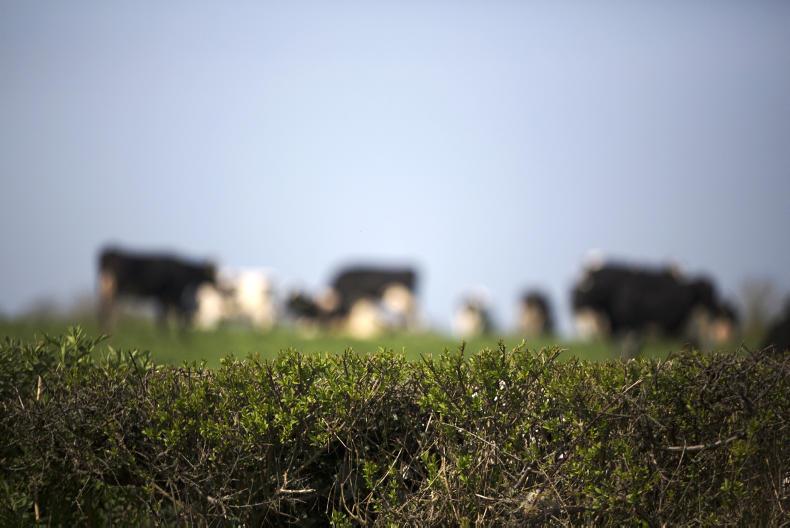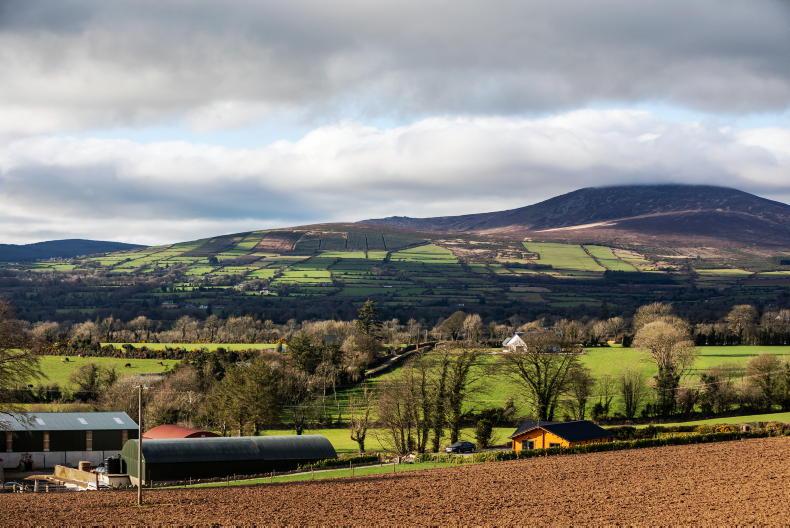The payment rates under the agri-environment and climate measures should be increased to provide a real incentive for farmers to take part in schemes, a European Commission study has found.
Evaluation of the Impact of the CAP on Water recommended for member states to increase the attractiveness of Rural Development Programme (RDP) measures, as member states favour the voluntary approach in inducing farmers to change their practices.
“In particular, payment rates under [agri-environment and climate measures] should be re-assessed in order to be a substantial incentive for farmers.
“Member states should consider the optimal uptake to be reached to achieve environmental objectives when setting the payment rates based on the principle of costs incurred/income foregone,” the report said.
Costs incurred, income foregone
The current measures provide for offsetting the additional costs incurred and income foregone as a result of farming practices.
“However, the payment rates for [these measures] have often been based on an average estimation of income loss without taking into account local differences, thus leading to unattractive payment rates for some of the potential beneficiaries and, as a result, to insufficient uptake.
“It is thus recommended to increase the payment rates delivered under the [agri-environment and climate measure] scheme so that it is a real incentive for farmers,” it said.
Target direct payments at less profitable farms
The study found that a considerable amount of the CAP budget is granted to farms independent of their agricultural pressures on water.
“Hence, direct payments should be reconsidered in order to better support less profitable farms implementing farming practices beneficial for the environment and water resources.
“Additional eligibility criteria should also be considered under voluntary coupled support to ensure that sufficient pasture area is available by livestock unit, to avoid any increase in nutrient pressure on water under livestock voluntary coupled support,” it said.
More stringent cross-compliance rules
Cross-compliance and greening measures are systematically implemented by almost all farmers benefiting from the CAP support at the EU level, the report said.
“They are considered as effective in maintaining minimum practices beneficial for water (eg buffer strips, winter soil cover, landscape features, crop diversification, etc).
“To further improve waterbodies status, more stringent requirements should be set under these schemes,” it said.
Good agricultural and environmental condition (GAEC) of land on buffer strips has considerable potential for protecting water from pollution, but also for protecting riparian margins.
“However, not all member states forbid the application of pesticides or tillage on buffer strips. It is thus recommended that all member states ban the spreading of both fertilisers and pesticides on buffer strips and reduce the possibility of ploughing these areas,” it said.
Read more
Farm inputs must be allowed to pass EU border checks
Fertiliser and pesticide targets blank in EU Farm to Fork plan
The payment rates under the agri-environment and climate measures should be increased to provide a real incentive for farmers to take part in schemes, a European Commission study has found.
Evaluation of the Impact of the CAP on Water recommended for member states to increase the attractiveness of Rural Development Programme (RDP) measures, as member states favour the voluntary approach in inducing farmers to change their practices.
“In particular, payment rates under [agri-environment and climate measures] should be re-assessed in order to be a substantial incentive for farmers.
“Member states should consider the optimal uptake to be reached to achieve environmental objectives when setting the payment rates based on the principle of costs incurred/income foregone,” the report said.
Costs incurred, income foregone
The current measures provide for offsetting the additional costs incurred and income foregone as a result of farming practices.
“However, the payment rates for [these measures] have often been based on an average estimation of income loss without taking into account local differences, thus leading to unattractive payment rates for some of the potential beneficiaries and, as a result, to insufficient uptake.
“It is thus recommended to increase the payment rates delivered under the [agri-environment and climate measure] scheme so that it is a real incentive for farmers,” it said.
Target direct payments at less profitable farms
The study found that a considerable amount of the CAP budget is granted to farms independent of their agricultural pressures on water.
“Hence, direct payments should be reconsidered in order to better support less profitable farms implementing farming practices beneficial for the environment and water resources.
“Additional eligibility criteria should also be considered under voluntary coupled support to ensure that sufficient pasture area is available by livestock unit, to avoid any increase in nutrient pressure on water under livestock voluntary coupled support,” it said.
More stringent cross-compliance rules
Cross-compliance and greening measures are systematically implemented by almost all farmers benefiting from the CAP support at the EU level, the report said.
“They are considered as effective in maintaining minimum practices beneficial for water (eg buffer strips, winter soil cover, landscape features, crop diversification, etc).
“To further improve waterbodies status, more stringent requirements should be set under these schemes,” it said.
Good agricultural and environmental condition (GAEC) of land on buffer strips has considerable potential for protecting water from pollution, but also for protecting riparian margins.
“However, not all member states forbid the application of pesticides or tillage on buffer strips. It is thus recommended that all member states ban the spreading of both fertilisers and pesticides on buffer strips and reduce the possibility of ploughing these areas,” it said.
Read more
Farm inputs must be allowed to pass EU border checks
Fertiliser and pesticide targets blank in EU Farm to Fork plan








SHARING OPTIONS